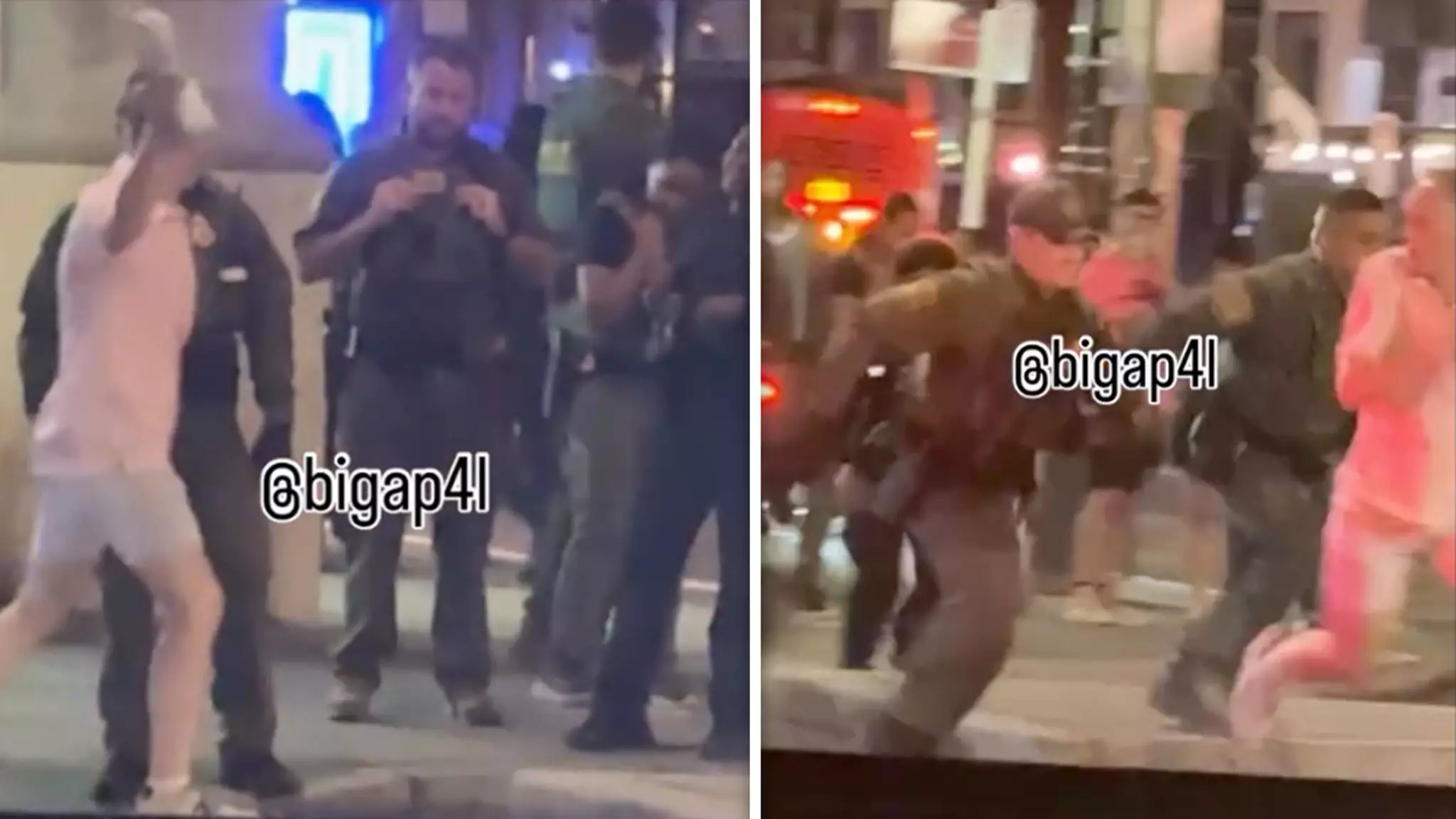Recent events in Washington, D.C., have cast a harsh spotlight on the heated tensions between citizens and federal authorities. What initially seemed like a minor act of defiance escalated into a spectacle of chaos, showcasing the deep-seated frustrations fueling unrest. A man, identified as Sean Charles Dunn, took a provocative stand that symbolized broader discontent with government presence in the city. His act of hurling a sandwich at a federal officer was more than just an impulsive gesture; it was a visceral response to what many perceive as excessive government control and overreach. The scene, captured on video and shared widely, reveals a fractured relationship where mutual respect appears absent, replaced by hostility and suspicion.
This incident underscores the volatile atmosphere in the nation’s capital—where political and social upheaval has become almost normalized. Dunn’s outspoken rejection of the authorities’ presence encapsulates a sense of alienation felt by many residents, fueling a cycle of confrontation rather than dialogue. While some viewers might dismiss the act as juvenile or trivial, it actually symbolizes a deeper issue: a society increasingly divided over the role and legitimacy of federal intervention. The image of a man’s furious outburst, culminating in a projectile thrown at an officer, illustrates the dangerous crossroads where frustration crosses into hostility, risking further chaos if left unaddressed.
The Role of Authority and Public Perception
Law enforcement’s response to such protests is equally telling. The officers involved maintained composure until physical assault necessitated a firm response. The subsequent arrest of Dunn highlights the dilemma authorities face: balancing enforcement of law with maintaining public trust. Comments from officials like U.S. Attorney Jeanine Pirro—emphasizing that police officers shouldn’t be subjected to abuse—reflect a broader narrative where public support for law enforcement is crucial in maintaining order. Yet, this stance also risks further alienating segments of the population who view federal agents with suspicion. The shouting match and physical confrontation reveal a mutual failure to communicate and understand, further deepening the societal divide.
Adding fuel to the fire is the controversial deployment of federal patrols in D.C., justified by leaders citing security concerns following violent incidents. Critics argue that such measures often do more harm than good—focused on minor disturbances rather than addressing root problems like systemic inequality and law enforcement misconduct. Ironically, in a city where long-standing issues persist, federal agents are visibly prioritizing symbolic displays of authority over substantive engagement with communities. This approach risks eroding public confidence, turning what could be constructive dialogue into a spectacle of animosity.
The Bigger Picture: Bridging the Divide
In a time rife with mistrust, the incident with the sandwich thrower serves as a metaphor for the broader disconnect between government entities and everyday citizens. Instead of reinforcing authority through intimidation or force, perhaps the focus should shift to fostering understanding and addressing underlying grievances. The tendency to dismiss acts of defiance as mere vandalism or rudeness oversimplifies the complex emotions behind such acts. Public officials and law enforcement must recognize that these moments often symbolize a cry for recognition, respect, and justice—things that cannot be forced through brute authority alone.
The narrative surrounding this event also raises questions about how society handles dissent. While upholding the rule of law is essential, so too is acknowledging the legitimacy of public frustration. If authorities continue to respond solely with force, they risk fueling the very chaos they seek to control. Instead, fostering open communication and reducing the sense of alienation could transform confrontations into opportunities for genuine understanding. The goal should be to build bridges—not walls—so that citizens feel heard and authorities can restore their legitimacy in the eyes of the people they serve.

